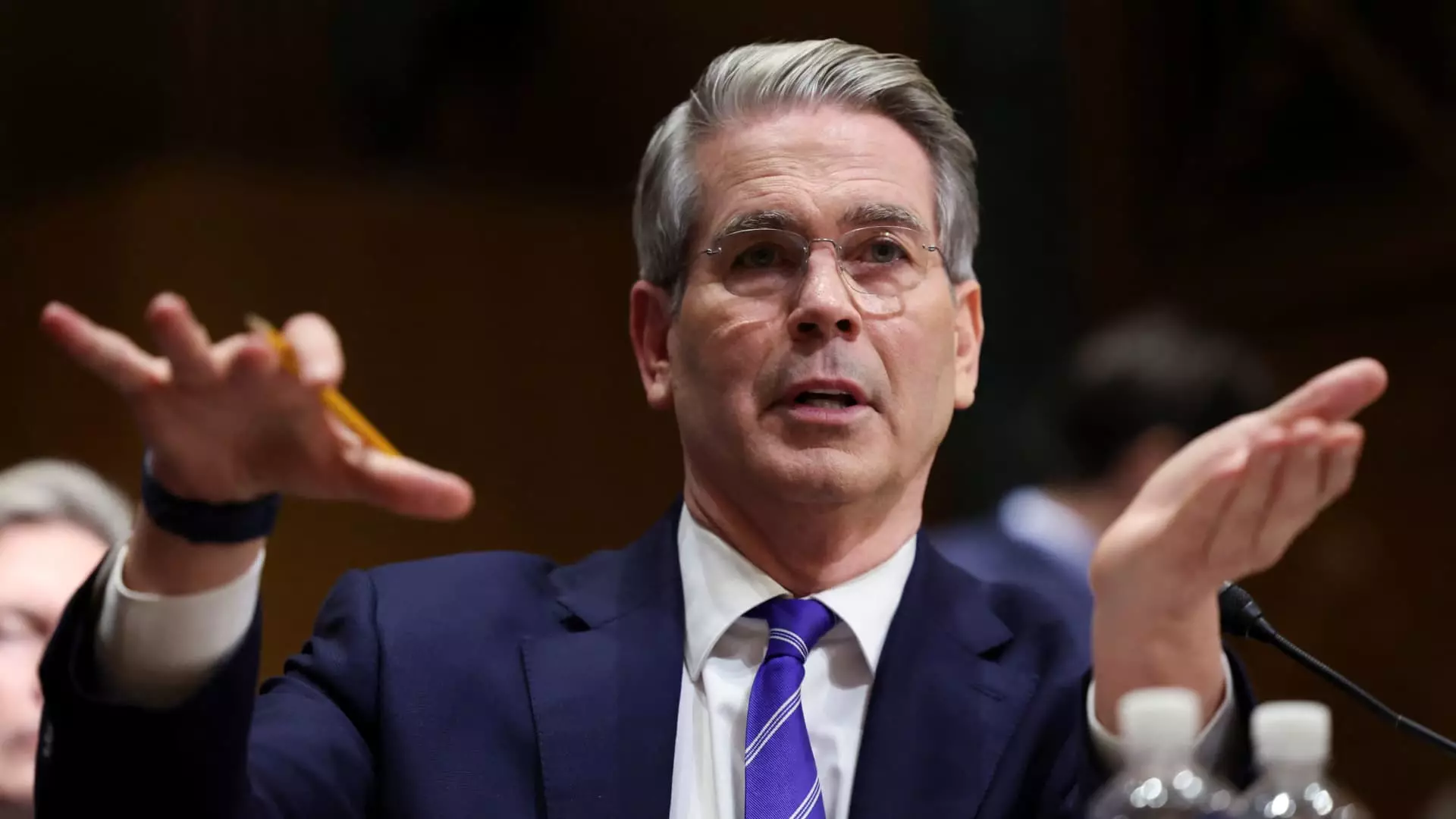In an era marked by geopolitical stakes at an all-time high, the methods employed by the U.S. administration to navigate the treacherous waters of international trade seem more like a high-stakes poker game than prudent economic policy. Treasury Secretary Scott Bessent’s recent remarks about the ongoing trade conflict with China present an overly optimistic, yet dangerously simplistic view. His assertion that the U.S. has a “substantial advantage” because of China’s recent tariff escalations glosses over the complex interplay of economic factors that influence global trade dynamics.
When Bessent claims that China is “playing with a pair of twos,” it may seem like a bold declaration, but it reveals a misunderstanding of the broader implications of these tariffs on U.S. consumers, businesses, and international relationships. Tariff wars do not merely hurt the adversary; they corrode the very economic foundations they intend to protect. The escalating tension invites a damaging cycle of retaliation that threatens to isolate America rather than strengthen its position on the global stage.
Myopic Focus on Tariffs
The administration’s tactics, including reciprocal tariffs intended to “bring trading partners to the negotiating table,” risk overshadowing the need for comprehensive reforms that address the root causes of the trade imbalance. Bessent’s belief that imposing higher tariffs will spark negotiations overlooks critical elements, such as the implications for American consumers who ultimately foot the bill through risen prices on imported goods. While the hope may be to lure manufacturing back to the U.S. and create jobs, reliance on tariffs as a primary tool ignores the fact that sustainable economic growth cannot be engineered solely through punitive measures.
Furthermore, the idea of “collecting substantial tariffs” as a means to bolster domestic industries assumes that these industries can rebound quickly enough to offset the immediate financial burden placed on American consumers. This presents a dangerous gamble. Instead of fostering a supportive environment for innovation and growth, this approach risks alienating future partners and inciting further retaliation.
The Illusion of Economic Superiority
Bessent’s comments highlight a simplistically binary viewpoint where trade is perceived in terms of winners and losers. This framing neglects the reality of economic interdependence, particularly that of the U.S. in relation to China. Dismissing the long-term consequences of these trade disputes as mere bargaining chips is not only shortsighted but potentially catastrophic. The fact that nearly 300 billion dollars in trade deficits with China were recorded in the previous year should be a wake-up call, not a mere statistic to be waved aside in a show of bravado.
While there is merit in pursuing equitable trade practices—particularly in relation to issues like currency manipulation and nontariff barriers—this pursuit cannot be achieved through isolationism cloaked in tariff protectionism. Negotiations require a level of cooperation and empathy; Bessent’s combative tone suggests a limit to the diplomacy necessary to resolve conflicts and build beneficial international partnerships.
Chasing the Illusive Bargain
The prospect of making significant economic gains from the tariffs is alluring, yet fundamentally flawed. The concept that other nations will heed the U.S.’s call to the negotiation table shows a misunderstanding of sovereign economics. Countries like Japan may show willingness, but others, especially China, have clearly signaled their intent to resist. The rigidity of China’s position indicates a potential quagmire for U.S. policymakers who assume that threats will prompt capitulation from Beijing.
Moreover, entangling economic consequences in a complex web of trade policies risks creating a backlash against the United States, resulting in a broader distrust among allied nations. Tariff walls not only interrupt the flow of goods but can also entrench adversarial attitudes, further complicating the diplomatic landscape in an already divided world.
While a tough stance on trade may play well to domestic audiences, it could lead to unforeseen ramifications on the global scale. Instead of negotiating through warfare-like tariffs, America should seek a multilateral approach that promotes collaboration and mutual benefit in international trade—an indispensable path forward that might eventually yield the desired economic prosperity without the collateral damage of a mismanaged trade war.



Leave a Reply